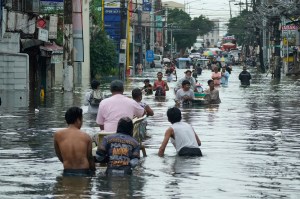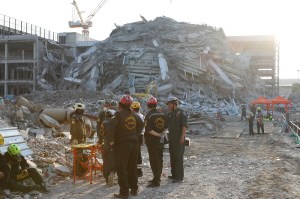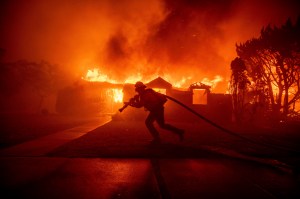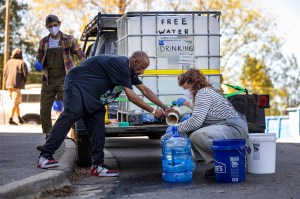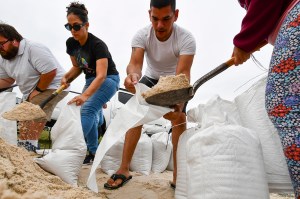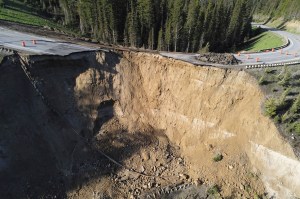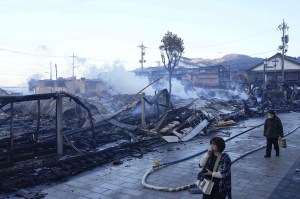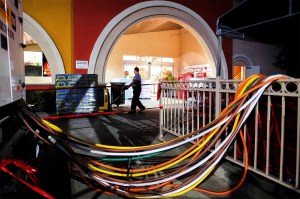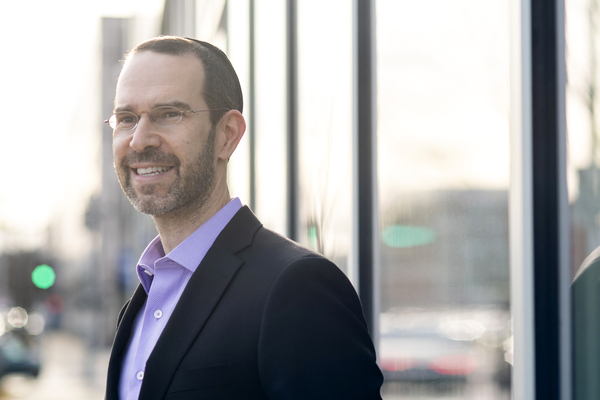
Daniel
Aldrich
Professor of Political Science, Public Policy, and Urban Affairs; Director, Masters Program in Security and Resilience
Expertise
Daniel Aldrich in the Press
Grist Magazine
They survived the hurricane. Their insurance company didn’t.
“We are in the era of polycrisis,” said Daniel Aldrich, director of the Resilience Studies Program at Northeastern University, “which is a fancy way of saying the number of disasters and their impact are both increasing and the time between shocks is decreasing, therefore government institutions, insurance companies, and homeowners can’t keep up.”

Your home has a 1 in 4 chance of being at severe risk from extreme weather
Zillow, RedFin, and other similar companies are starting to conduct their own statistical analyses or include climate risks in real estate listings. That, too, said Daniel Aldrich, director of the Resilience Studies Program at Northeastern University, is a sign of the times.

Earthquake in Afghanistan Leaves More Than 800 Dead
“Domestic governance structure and international aid are very critical in a moment like the aftermath of this earthquake, and both are at a low point in Afghanistan at the moment,” said Daniel Aldrich, the director of the Resilience Studies Program at Northeastern University.

Taliban call for international aid as Afghan earthquake toll tops 1,400
While international agencies initially filled humanitarian gaps after the Taliban’s takeover in August 2021, “the longer we’re seeing the consequences of [President Donald Trump’s] attacks on international aid agencies and the withdrawal of the U.S. from so many of those frameworks, we’re seeing that those gaps remain unfilled,” said Daniel Aldrich, co-director of the Global Resilience […]
Wired Italia
Earthquakes, floods, pandemics, fires: why interconnected disasters are the new normal
Interconnected disasters, from the Covid-19 pandemic to flash floods and devastating wildfires to the recent, devastating earthquake in Kamchatka, are now our new normal . This is according to a new study by researchers at Northeastern University, which explored a concept experts call polycrisis.
WGBH
Lessons from Tokyo: the world’s largest city is car free
Daniel Aldrich, now a professor of politics and public policy at Northeastern University, lives in Brighton with his wife and four children. But he’s always felt the pull of Tokyo — so much so that he’s returned for research and fellowships, spending a total of six years living in the city.
Marketplace
Could natural disasters cause insurance companies to go out of business?
Many of the insurance companies we have now were formed during “peace time,” which is when the consequences of climate change were not visible, said Daniel Aldrich, a political science and public policy professor at Northeastern University.

No ‘water system in the world’ could have handled the LA fires. How the region could have minimized the damage
Regions vulnerable to wildfires can take steps to better prepare, such as changing neighborhood designs and enacting policies that require residents to clear brush and debris, said Daniel Aldrich, a Northeastern University professor who focuses on disaster resiliency and recovery.
Global News
L.A. wildfires: ‘Cascading disaster’ unfolding as water hydrants run dry
Hydrants are running dry in LA. Northeastern University professor Daniel Aldrich explains how L.A.’s water shortage is fueling the Palisades Fire, creating what he calls a ‘cascading disaster’.

Rare earthquake shakes New York
Interview with the co-director of Northeastern University’s the Global Resilience Institute, Dr. Daniel Aldrich, about whether New York is prepared to withstand a quake of a larger magnitude.
